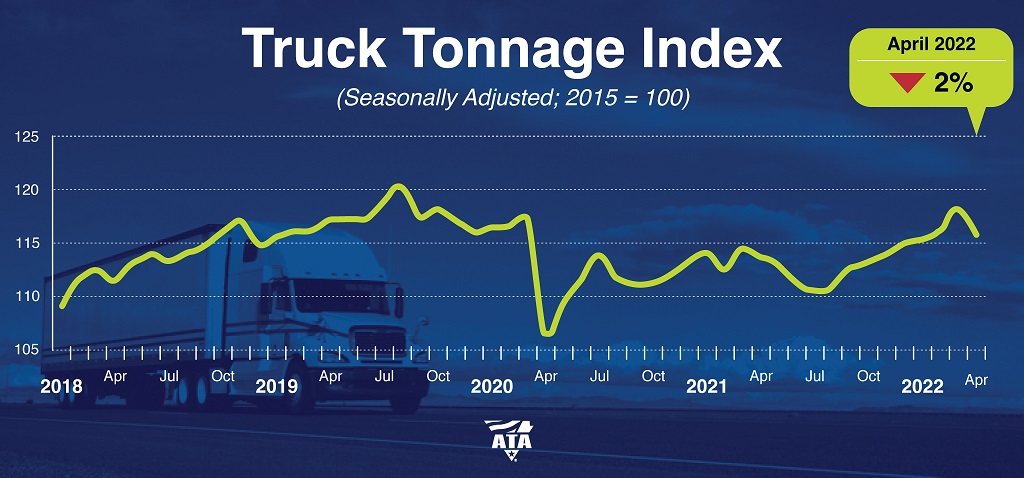Arlington, Virginia – American Trucking Associations’ advanced seasonally adjusted (SA) For-Hire Truck Tonnage Index decreased 2% in April after rising 1.8% in March. In April, the index equaled 115.8 (2015=100) versus 118.2 in March.

“After eight straight gains totaling 6.9%, for-hire tonnage finally slid back in April. Despite being the largest sequential drop since August 2020, the index was still above where it started in 2022 and a year earlier,” said ATA Chief Economist Bob Costello.
“It is important to note that ATA’s for-hire tonnage data is dominated by contract freight with minimal amounts of spot market loads. The spot market has softened more than for-hire contract freight, as the market transitions back to pre-pandemic shares of contract versus spot market," Costello said.
"While I expect contract freight to outperform spot market freight, the rate of growth will be slower than in 2021. Most contract carriers are still struggling with maintaining enough capacity, both equipment and drivers,” he said.
March’s increase was revised down from our April 19 press release.
Compared with April 2021, the SA index increased 1.8%, which was the eighth straight year-over-year gain. In March, the index was up 3.3% from a year earlier. In 2022, year-to-date and compared with same period in 2021, tonnage was up 2.3%.
The not seasonally adjusted index, which represents the change in tonnage actually hauled by fleets before any seasonal adjustment, equaled 114.1 in April, 7.4% below the March level (123.2). In calculating the index, 100 represents 2015. ATA’s For-Hire Truck Tonnage Index is dominated by contract freight as opposed to spot market freight.
Trucking serves as a barometer of the U.S. economy, representing 72.5% of tonnage carried by all modes of domestic freight transportation, including manufactured and retail goods. Trucks hauled 10.23 billion tons of freight in 2020. Motor carriers collected $732.3 billion, or 80.4% of total revenue earned by all transport modes.
ATA calculates the tonnage index based on surveys from its membership and has been doing so since the 1970s. This is a preliminary figure and subject to change in the final report issued around the fifth day of each month. The report includes month-to-month and year-over-year results, relevant economic comparisons, and key financial indicators.